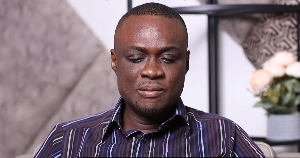By Kwame Okoampa-Ahoofe, Jr., Ph.D.
Garden City, New York
Dec. 5, 2014
E-mail: okoampaahoofe@optimum.net
The sharpest edge to Mr. Jon Benjamin's speech at the IMANI-Ghana forum on professional integrity was shockingly missed by most critics and media commentators who had occasion to critique and/or assess the dire and politically far-reaching implications of the same. (I mean, I am the only Ghanaian on the country's media landscape who studied Critical Thinking at The City College of the City University of New York? As well as Eighteenth-Century European Philosophy as an undergraduate Ford Foundation Fellow?)
Virtually no pundit has, as of yet, highlighted what the key operatives of the Mahama-led government of the National Democratic Congress (NDC) ought to be fervidly pondering and ensuring that it is never reprised so flagrantly anytime soon. And as I told my good friend resident in the Washington, DC, metropolis recently, the most salient gist of the British High Commissioner's speech (it was actually a blockbuster lecture, his vehement protestations to the contrary notwithstanding) was the fact that the ruling National Democratic Congress appears to have effectively - and perhaps even deliberately - ceased collaborating with its Western-European "donor partners" to significantly stem the exponentially rising tide of drug-trafficking in the West African sub-region.
It is, indeed, for this reason that Mr. Benjamin found it imperative to repeatedly and vehemently reject NACOB's claim that it had studiously collaborated with its British counterparts at London's Heathrow Airport in nabbing Ms. Nayele Ametefe (aka Ruby Adu-Gyamfi) on Nov. 10, 2014. The recently dissolved NACOB is, of course, the Narcotics Control Board, whose executive secretary was Mr. Yaw Akrasi-Sarpong.
In poignantly refuting the "collaborative lies" put out by NACOB, Mr. Benjamin noted that a deftly orchestrated collaboration between NACOB and its British intelligence counterparts would have resulted in the prompt arrest of Ms. Ametefe at Ghana's Kotoka International Airport (KIA), or the source of the crime, and not at Heathrow, the endpoint or destination of the criminal convict. But the preceding was not quite the message that Mr. Benjamin wanted to send Mr. Akrasi-Sarpong and his minions. More significantly, the British High Commissioner had President John Dramani Mahama smack-dab in the crosshairs of his speech.
I would not be the least bit flabbergasted should Mr. Benjamin turn out to hold an advanced Oxbridge degree in African Studies, Anthropology, Sociology or one of the "ologies," as I often joke to my students. You see, the crux of his message was widely missed by most of his audience because of the "Ananse Story" mode in which he chose to couch his presentation. It pretty much reminded me of my elementary school days at the Legon Staff-Village Primary, when I had to go show myself every Monday morning to Dr. May, that petite English pediatrician - or general practitioner, I forget which - at the University Hospital across the street.
There, I would be given one tablet of Malarex, the well-known malarial medicine. You see, Malarex is a very bitter pill; and so to enable patients swallow it with the minimum of gustatory discomfort, the manufacturers sugar-coated it. In his IMANI-Ghana, largely tongue-in-cheek, speech the British High Commissioner made it unmistakably clear that his government, both at home in London and abroad, in Accra, had forensically conclusive evidence that the National Democratic Congress had cynically and brazenly become a prime facilitator of the illegal trafficking of hard drugs like cocaine and heroin.
Mr. Benjamin then proceeded to observe that Britain and its allies were not the least bit interested in either toppling or destabilizing the culprit government, because Ghana's fledgling, albeit robust, democratic culture was an emulative model for the rest of the West African sub-region. In other words, it would be a great mistake for President Mahama to suppose that he and/or his government could cavalierly and unconscionably muddy the waters and still expect to draw up clean water from the well.
It is this message which the bratty likes of Mr. Samuel George Nettey ought to be worried about, and not which Ghanaian politician or leader appears to have "possibly" reaped the maximum of benefits from the generosity of drug barons, baronesses and kingpins (See "Sam George: Akufo-Addo Has Benefitted From Drug Barons..."Peacefmonline.com / Ghanaweb.com 12/4/14).
Opinions of Tuesday, 9 December 2014
Columnist: Okoampa-Ahoofe, Kwame















